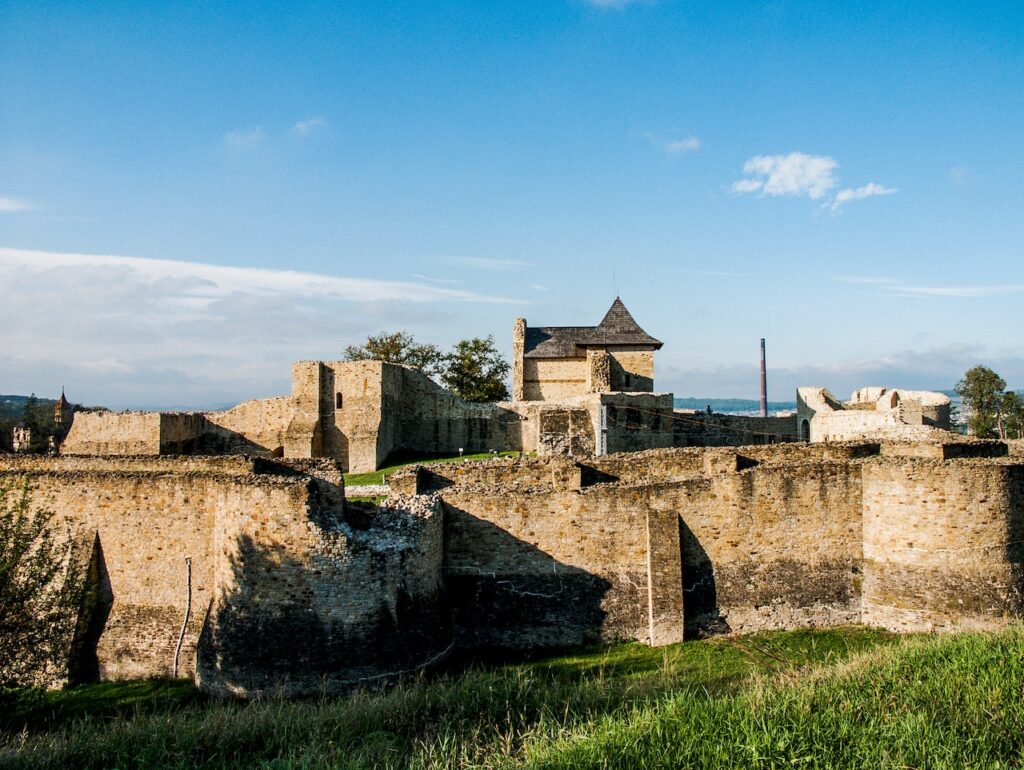I grew up in a small town surrounded by farmland. We didn’t need to worry much about navigation. There was only one paved street that had businesses on it. The other roads were made of dirt and had the houses on them. We had to go out of town in order to get Chinese food, or go to the mall, or shop at a bookstore. Every Sunday our family got in the car and travelled to another city to go to church. Suffice it to say that things were different then.
Think back to your own childhood. Maybe you also grew up in a small community. Or maybe it was a big city atmosphere. Regardless, I bet you can think of a few things that you did differently back then vs. now. Here is the big thing I remember about the town I grew up in:
We didn’t lock our doors.
We could have if we had wanted to, and I think we did when all of us left town. But at night or any other time of day, the doors were unlocked. The same is true for our cars. There was never an expectation that we would need to lock up. That is a big difference from today for me. Now everyone I know keeps their cars and houses locked. Many of us have connected cameras or security systems. We are notified on our phones if a motion detector near our front door goes off.
I wonder what that says about us?
We keep our cars and houses locked up for two reasons: peace of mind, and protection. Thousands of years ago, cities got the same kind of peace of mind and protection from building walls. China built a wall around themselves. The Roman Empire was pretty good at wall building. And it is hard not to think of Medieval Europe without envisioning walls around a city or castle.
Walls are good at keeping people out, but they also work well at keeping people in. The Berlin Wall is a famous example of that. It separated East and West Germany for almost 30 years. At the time it came down there were 15 border walls like it around the world. Now, there are more than 60.
The Walls of Jericho were famous separators in the bible. They were meant to keep people, like the Israelites, out. If you are familiar with the story you will know that these walls didn’t come close to fulfilling their purpose. The fall of Jericho marked the end of the long march of God’s people through the wilderness. Notice how similar the bible verses are for the beginning and end of this saga. Here is the start, with Moses encountering a bush on fire:
Exodus 3:4-6
4 When the Lord saw that he had gone over to look, God called to him from within the bush, “Moses! Moses!”
And Moses said, “Here I am.”
5 “Do not come any closer,” God said. “Take off your sandals, for the place where you are standing is holy ground.” 6 Then he said, “I am the God of your father, the God of Abraham, the God of Isaac and the God of Jacob.” At this, Moses hid his face, because he was afraid to look at God.
And here is near the end, when Joshua encounters God’s servant near Jericho:
Joshua 5:13-15
13 Now when Joshua was near Jericho, he looked up and saw a man standing in front of him with a drawn sword in his hand. Joshua went up to him and asked, “Are you for us or for our enemies?”
14 “Neither,” he replied, “but as commander of the army of the Lord I have now come.” Then Joshua fell facedown to the ground in reverence, and asked him, “What message does my Lord have for his servant?”
15 The commander of the Lord’s army replied, “Take off your sandals, for the place where you are standing is holy.” And Joshua did so.
The two passages are eerily similar.
For Moses, this encounter begins a journey to escape the Egyptian walls of slavery. Joshua encounters a commandment to break the walls keeping them out of the promised land. In a way the Israelite journey is bookended by walls. And in each case the people themselves did very little to break through them. God did all of the work. In both stories God breaks the walls after instructing the people. God seems to be saying “Follow me, and I will make those walls disappear.”
I think this lesson matters to us a great deal. We tend to build walls between each other, don’t we? We are very good at separating ourselves.
From people we like and people we don’t
Between estranged family members
Between ourselves and those we have not forgiven
Wouldn’t it be something if, like Moses and Joshua, we encountered God, decided to follow, and watched as those walls went away?
God Bless.

